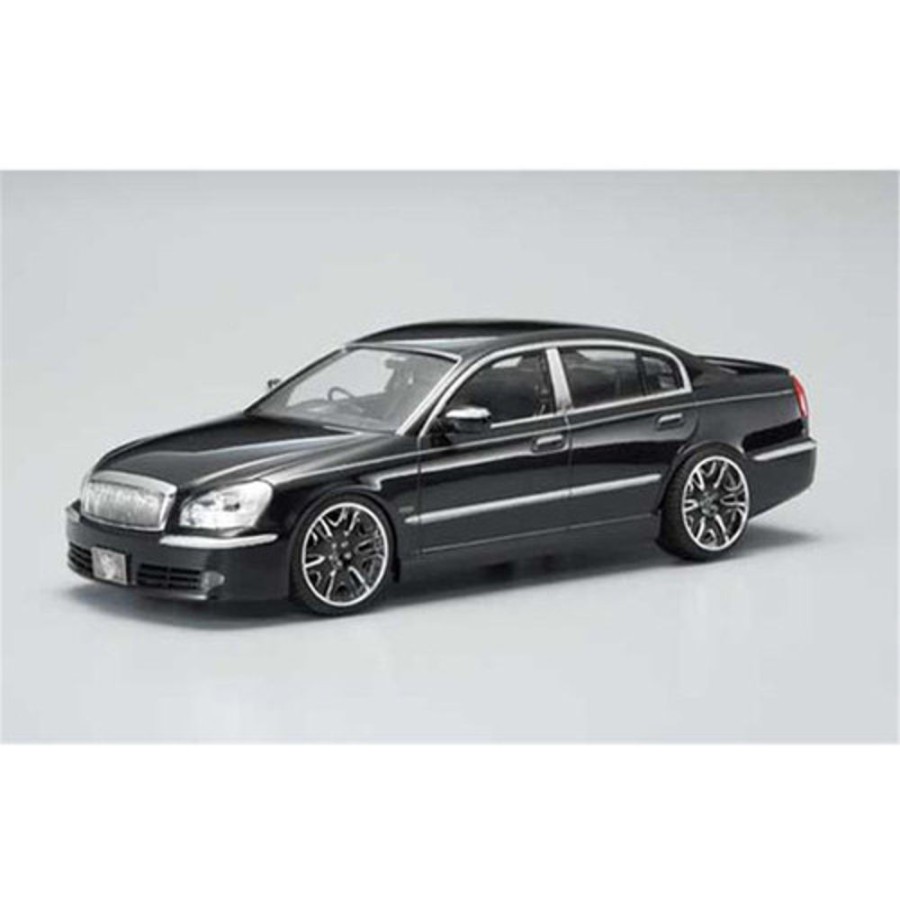Aircraft | Model & Die-Cast Tamiya Tamiya 1/32 Mcdonnell Douglas F-15C Eagle [60304]
$124.24 $90.48
Aircraft | Model & Die-Cast Tamiya Tamiya 1/32 Mcdonnell Douglas F-15C Eagle [60304]

Mcdonnell Douglas F-15C Eagle
&Nbsp;
At One Time During The Missile Boom Years, The U.S. Air Force Believed Future Air Battles Could Be Decided By Air-To-Air Missiles Rather Than Guns In The Traditional Dog-Fighting Manner. The Need For Air Superiority Weapons Was Relearned During The Vietnam Conflict And Led To An Air Force Requirement For An All-Weather, Single-Seat, Twin-Engined Fighter. This Aircraft Was To Optimize Counter-Air Operations.
&Nbsp;
The U.S. Air Force Requested Several Manufacturers To Study And Develop Prototypes During The Late 1960’S Under The Fx Program (Fighter Experimental). Mcdonnell Douglas Was Awarded A Contract To Develop The F-15 Eagle Jet Fighter In December 1969. The Eagle’S Advanced Aerodynamic Design Greatly Reduced Drag At Both The Low And High Lift Configurations, And Achieved Superior Maneuverability During Varying Flight Conditions.
&Nbsp;
Making Its Maiden Flight In July 1972, It Was Deployed In November 1974 As The F-15A Eagle, And Had Been In Active Service Since Then. It Is Powered By Two Pratt &Amp; Whitney F100 Afterburning Turbofan Engines Developed Exclusively For The For The F-15, And Is Capable Of Speeds In The Mach 2.5 Range. The F-15 Can Carry A Heavy Load Of Devastating Weapons, Including The Internally Mounted 20Mm M61A-1 Vulcan Cannon, With 940 Rounds Of Ammo, The Aim-7 Sparrow Radar Guided Missile And Aim9 Sidewinder Short Range Air-To-Air Missile. In 1979 An Upgraded Version Of The Eagle Was Introduced As The F-15C. One Notable Change Was The Increase In Fuel Capacity, But Even More Fuel Was Made Possible By The Conformal Fuel Tanks, Which Snuggle Between The Wings And Up Against The Jet Inlet Ramps. This Increase In Fuel Capacity Enables The Eagle To Expand Long Range Operations, Such As Escorting Awacs And Strike Aircraft To Their Targets. The Landing Gear Has Been Reinforced To Accept The Extra Fuel Weight, Allowing A Maximum Take-Off Weight Of 68,000 Lbs (30844 Kg). The F100 Pratt &Amp; Whitney Engines Were Also Upgraded For Easier Maintenance And Increased Performance. The F-15C’S Maximum Rate Of Climb At Sea Level Is More Than 50,000Ft (15,240M) Per Minute.
&Nbsp;
As The Premier Jet Fighter The Eagle Continuously Receives Improvements To Keep Pace With The Changing State Of The Art. The Multi-Stage Improvement Program (Msip) Is Organized To Enhance The Avionics, Like The Internal Ecm System And Computer Capacity. The Apg-63, Provides Excellent Long Range Navigation And Tracking For The Eagles’ Fighter Interdiction Role. Owning To Its Versatility, Adaptability And Ruggedness, The F-15 Eagle Will Certainly Continue To Play Its Role Of An Air Superiority Fighter Well Into The 21St Century.

![Aircraft | Model & Die-Cast Tamiya Tamiya 1/32 Mcdonnell Douglas F-15C Eagle [60304] Aircraft | Model & Die-Cast Tamiya Tamiya 1/32 Mcdonnell Douglas F-15C Eagle [60304]](https://oscardshop.com/wp-content/uploads/2024/02/2d15c710002c93a749616c34a28c6080_0.jpg)
![Aircraft | Model & Die-Cast Tamiya Tamiya 1/32 Mcdonnell Douglas F-15C Eagle [60304] Aircraft | Model & Die-Cast Tamiya Tamiya 1/32 Mcdonnell Douglas F-15C Eagle [60304]](https://oscardshop.com/wp-content/uploads/2024/02/2d15c710002c93a749616c34a28c6080_1.jpg)
![Aircraft | Model & Die-Cast Tamiya Tamiya 1/32 Boeing F-15E Strike Eagle W/Bunker Buster [60312]](https://oscardshop.com/wp-content/uploads/2024/02/254c334f5d0cbb0424b964443085d01a_0.jpg)
![Aircraft | Model & Die-Cast Tamiya Tamiya - 1/72 Wb P-47D Thunderbolt Bubbletop Plastic Model Kit [60770]](https://oscardshop.com/wp-content/uploads/2024/02/ee5142fc7fd99d74b49d95b01a15eea1_0-100x100.jpg)











Reviews
There are no reviews yet.